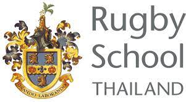In part one of the series, we provided an overview of how Thailand’s PDPA law affects international schools. In part two, we discuss some of the challenges associated with data processing within international schools operating either inside or outside Thailand (catering to Thai students).
What data processing challenges are schools facing?
Without the shadow of a doubt, managing, safeguarding and processing the data of students in the various international schools operating inside and around Thailand has become a very complex and challenging ordeal.
And if things weren’t already tough enough, the onset of the pandemic has managed to make these challenges even more complex. Today, the effective use, management and safeguarding of pastoral data, medical records or admissions data, for example, has become a critical issue for schools’ senior management.
It is important to acknowledge that the only way to address this pressing issue, particularly in the present ‘global situation’, is to rely on data alongside robust technology which can help flag potential problems at a much earlier stage – when it comes to data processing within schools.
Not only that but it should also pave the way for a deeper, more meaningful and nuanced understanding of the potential vulnerabilities, security threats and risks that it poses to the wider school community.
Understanding the data processing challenge within international schools
One of the immediate and most prominent consequences of the pandemic and the long periods of enforced lockdowns is that it has led to the unprecedented use of technology in nearly all countries – particularly Thailand, where students from all over the world come to study. This has made it even more important for schools to understand what Thailand PDPA is, how to remain compliant and what some of the challenges around specific data processing are.
All of this has led to significantly higher screen-time for both teachers and students as well as school management – which in turn, could have serious implications in terms of students’ wellbeing and safeguarding if data processing challenges are not understood and dealt with swiftly.
We may need to go off on a bit of a tangent here to better drive home the underlying point and mention that when students’ data is not safeguarded and processed properly as per the guidelines set by PDPA – it can have devastating consequences since those same students may be exposed to potentially harmful situations.
With an estimated 83% of children spending time online, students are now more vulnerable to cyber-bullying, exposure to harmful content and even sexual exploitation. Unfortunately, mental and emotional health of students has deteriorated since the lockdown, with schools going almost completely online. A general lack of access to educational services and the usual academic support networks means that students have been essentially cut off from the vital support they have been accustomed to all along.
Now – with that said, and some of the challenges we have highlighted above – how can international schools develop an effective approach to better manage their data and process it in a way so that their students remain safe?
Given the sheer volume and complexity of information which is now prevalent in most schools’ online information databases, a strategic approach to data management and processing is absolutely critical.
How schools can overcome data processing and management challenges
We recommend a few steps that you can take from the outset to get the most out of your data:
Understand how data is processed in the local context
When you understand your local context, you can better determine the optimal strategic approach to data processing. The circumstances around your school’s management are most likely a combination of factors which are unique only to you.
Therefore, understanding the specific risks and vulnerabilities affecting your school community is essential and this extends well beyond the school campus’s gates.
Encourage a culture of effective reporting
You must clearly set out your data requirements. Determine what kind of information you need in order to tackle the data processing challenges which have been identified. And, in order to support this, your staff as well as the wider school community must be aware of best practices around data processing, sharing and management.
In addition, hiring an experienced data processing officer (DPO) who is familiar with PDPA guidelines can significantly make your job easier.
Record-keeping and trends identification
Where a positive culture needs to thrive, you needed the right information management systems to create the timelines, incident history linked with student profiles and reports which might help pastoral managers, for example, interpret data and identify shifting trends. This can help them avoid unnecessary data processing challenges.
This ability to consistently identify and categorise specific concerns is an important step to having meaningful data analysis.
The right technology and tools
If you’re among those schools who are still relying on paper records as a form of data management, then you are probably aware of the challenges which revolve around safeguarding the critical data that schools are now required to manage and process.
Full digital systems, on the other hand, not only provide detailed analysis but also ensure that all designated users adhere to a predefined workflow with best practice approaches already integrated.
In conclusion
In part two, we discuss some of the challenges associated with data processing within international schools operating either inside or outside Thailand (catering to Thai students).
However, unless you are aligned with the appropriate technology, personnel and systems to do so, you’re placing your students’, management personnel’s and school’s reputation at undue risk.
At VinarcoPDPA we have a full range of PDPA services for International Schools contact info@vinarcopdpa.com or Tel: +66 (0) 2285 6240-9




























